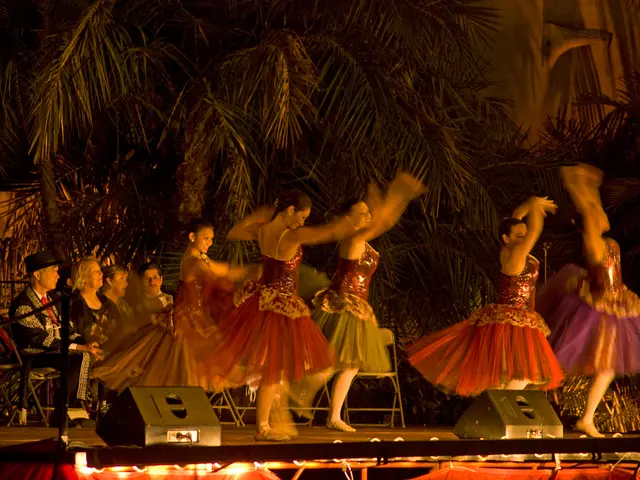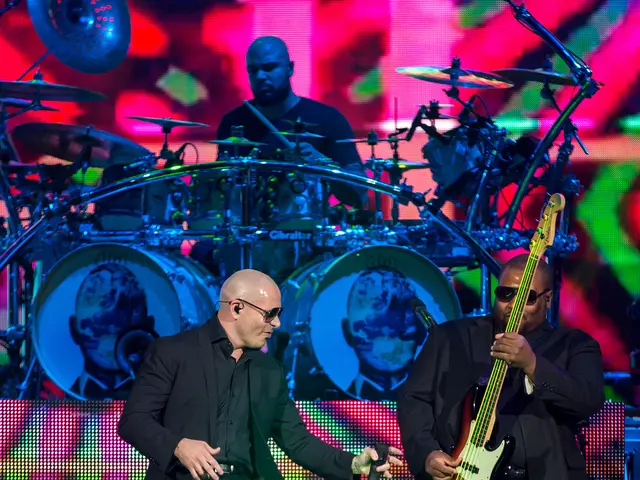Distraught expressions on screen during TV broadcasts
**Why do people tune into funeral broadcasts on TV? Isn't it a bummer to experience someone's passing even virtually? It's a common question among folks who, early on Saturday mornings, find themselves transported to Rome for Pope's final journey through the small screen, or those who joined the procession for the Queen three years ago with a few camera shots.
There's no single answer to this intriguing question. Sometimes, understanding your own emotional response to a stranger's death can be complex. The case of the head of the church is more comprehensible than a foreign leader's, but they share one commonality: the fear of our mortality. The Vatican knows all too well how ceremonies help alleviate such fear. So, it's not about bringing death into your living room, but finding solace instead.
Why Watch Funerals on TV?
- Casting a Wide Net: Live streaming funerals and television broadcasts enable those who can't be physically present—due to location, health, or mobility constraints—to partake in the send-off and the communal grieving process. It provides a lifeline for those who held the deceased dear but are kept apart by distance, allowing them to share in the collective experience of grief and respect[1].
- Paying Tribute to Influencers: Watching the funerals of notable figures or state funerals on TV permits individuals and communities to collectively honor individuals who have significantly impacted society or their personal lives. For instance, the funerals of leaders such as Pope Francis or national figure state funerals garner widespread viewership, expressing respect, remembrance, and acknowledgement of the deceased's legacy beyond the immediate family or local community[2][3].
- Ritualistic and Cultural Expression: Death rites like funerals symbolize beliefs about life, death, and community. Watching such events can reaffirm cultural or religious beliefs about mortality, offering a shared vocabulary for grief. This shared experience transcends the physical participants to TV viewers, making the ritual more accessible and inclusive[4].
Psychological Dimensions
- Navigating Grief and Emotional Processing: Funerals provide a structured framework for expressing grief and honoring the departed. Viewing these remotely can aid individuals in processing their emotions by observing communal mourning and rituals, strengthening their feelings of loss even though they aren't physically present[1][4].
- Crafting a Sense of Connection and Closure: Seeing others mourn and listen to eulogies or rituals on TV can generate a sense of involvement in a community, lessening feelings of isolation in grief. Virtual participation can help offer closure and affirmation of the deceased's life and impact[1][2].
- Potential Psychological Risks: While funerals play an essential role in the grieving process, frequent or prolonged exposure to death-related content, particularly distressing events, could have psychological repercussions. This impact is particularly pronounced for professionals regularly exposed to death and funerals, who exhibit higher mental health challenges and PTSD rates[5]. For the general public, watching funerals is typically a controlled and uncommon event; however, individual responses can vary based on personal loss experiences.
In essence, individuals watch funerals on TV to be part of the communal grieving process, despite being physically apart. This practice supports emotional processing, social bonding, and closure around grief, fulfilling a deep psychological and cultural need for respect and remembrance. However, the emotional impact depends on the context and individual sensitivity to death-related content[1][2][3][4][5].**
- Joining the Collective Mourning: Given the emotional resonance of religious leaders such as the Pope, their funerals are often broadcasted for those who want to participate in the global expression of grief and reverence.
- Gleaning Insight into Emotional Responses: The display of social-media condolences and funeral broadcasts can serve as forms of entertainment, providing a window into the complex emotional responses humans demonstrate when facing mortality.
- Engaging in Virtual Rituals: For individuals unable to attend in-person, such as for health or mobility reasons, livestreamed funerals serve as an opportunity to observe and engage in rituals surrounding mortality, fostering a sense of belonging.
- Understanding Cultural Expression: Funeral broadcasts can help viewers better appreciate the unique cultural and religious rituals associated with death, which may offer insights into the values, beliefs, and histories of different societies.






